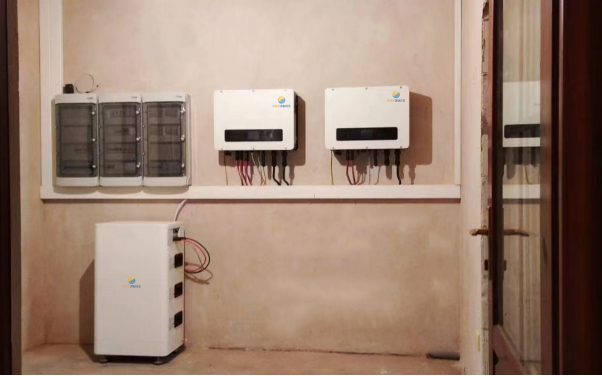Solar panel temperature is an important factor to consider when evaluating its efficiency. When sunlight hits solar panels, they absorb energy and convert it into electricity. However, the temperature of the panels affects their ability to efficiently convert sunlight into electricity.
The efficiency of solar panels is typically measured using standard test conditions (STC), assuming a panel temperature of 25°C. However, under real-world conditions, solar panels often reach temperatures much higher than this, especially when exposed to direct sunlight. As solar panels get hotter, their efficiency tends to decrease. This is because the semiconductor materials used in solar cells have negative temperature coefficients, which means their efficiency decreases as temperature increases.
Reasons for lower efficiency of solar panels
Energy losses due to higher temperatures can have a significant impact on the overall performance of the panel. There are several reasons why the efficiency of solar panels decreases with increasing temperature:
Increased resistance: As temperature increases, the resistance within a solar cell increases. This results in higher energy losses in the form of heat and reduces the flow of electrical current.
Voltage drop: The voltage output of solar panels can also be negatively affected by high temperatures. The reduction in voltage further reduces the overall power output.
Heat loss: Solar panels generate heat while converting sunlight into electricity. If the panels get too hot, the excess heat causes energy loss and can degrade the performance of the solar cells over time.
How to mitigate the effects of temperature on solar panel efficiency?
It is worth noting that the effect of temperature on solar panel efficiency varies depending on the type of solar panel technology used, different types of solar cells have different temperature coefficients, which determine their sensitivity to temperature changes. For example, monocrystalline silicon solar panels tend to have a lower temperature coefficient than thin-film solar panels. To mitigate the effect of temperature on solar panel efficiency, several approaches can be taken:
Mounting and Ventilation: Proper panel mounting and ventilation will help dissipate excess panel heat and prevent the panel from overheating. This can be achieved by using a proper mounting system and ensuring proper space between panels to facilitate airflow.
Panel Orientation: Orienting the solar panel in a way that optimizes the solar panel’s exposure to sunlight while minimizing heat build-up helps maintain higher efficiency. This may involve adjusting the tilt angle or using sunshades to block direct sunlight during the highest temperatures during the day.
Cooling system: Active cooling systems, such as water cooling or air cooling, can be used to reduce the temperature of the solar panels. These systems circulate a cooling medium through the panels to dissipate excess heat and maintain a low operating temperature.
Choice of Solar Panel Technology: The choice of solar panel technology can also play a role in minimizing temperature-related efficiency losses. Different types of solar cells have different temperature coefficients, so choosing a panel with a lower temperature coefficient can help maintain high efficiency at higher operating temperatures.
Conclusion
In conclusion, the temperature of a solar panel can significantly affect its efficiency. Higher temperatures degrade solar panel performance due to increased resistance, reduced voltage output, and heat loss. However, implementing proper installation, and cooling techniques, and selecting the correct type of solar panel can help mitigate the effects of temperature on panel efficiency and maintain optimal performance.
Post time: Jul-21-2023
